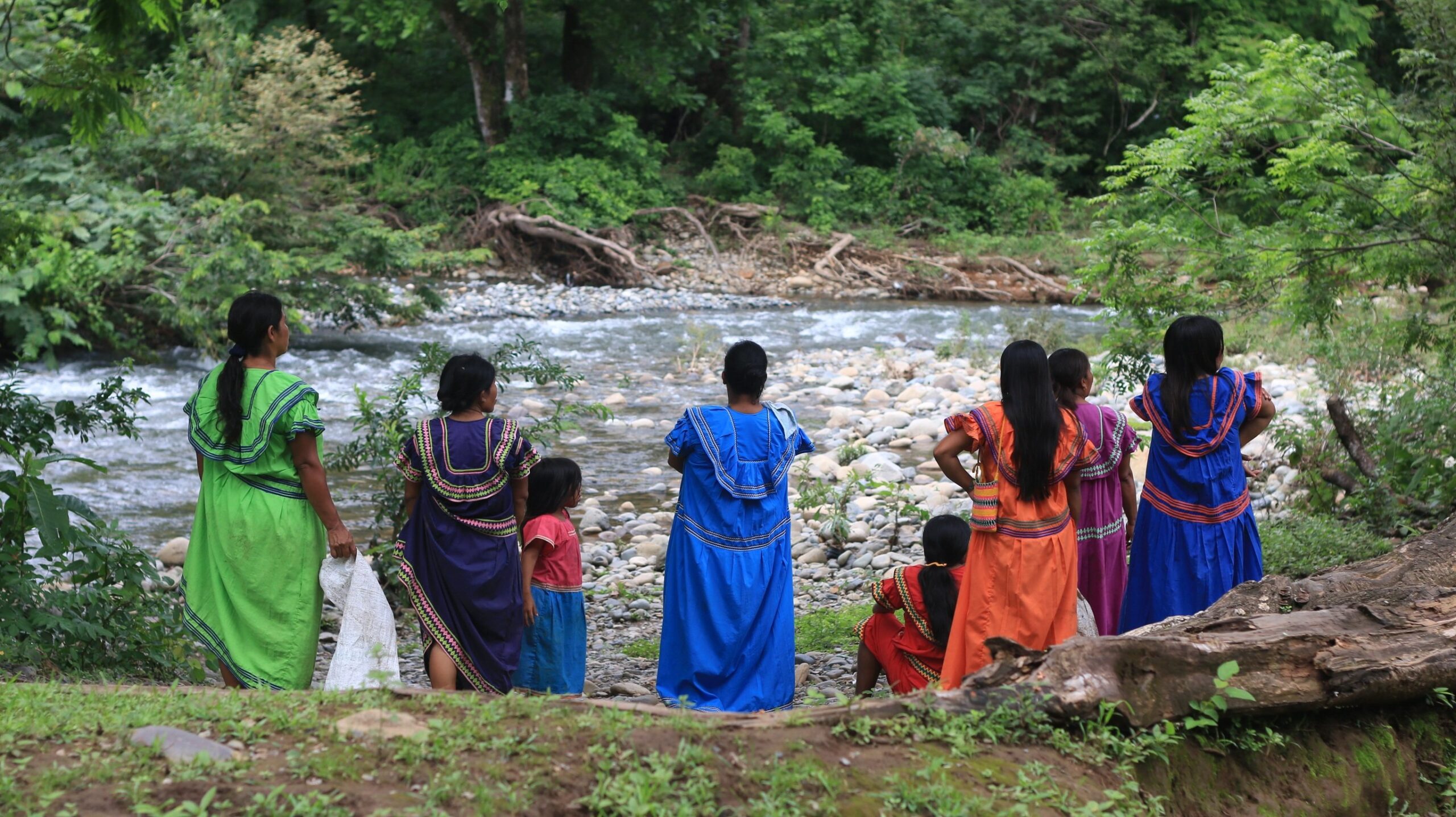In the lush Panamanian jungle, local communities are organizing to protect one of the country’s last intact rainforests from a 330-kilometer long electrical transmission line.

This transmission line, known as “Line IV,” passes through the ancestral lands and territories of the Indigenous Ngäbe-Buglé communities in Bocas del Toro. It not only threatens the rights of local communities and the environment in a country vulnerable to climate change, but also threatens to open the region to further unwanted development — from new roads to massive mining projects.
CIEL has been supporting the Movement for the Defense of the Territories and Ecosystems of Bocas del Toro (MODETEAB) to protect Indigenous rights affected by Line IV. This year, CIEL supported MODETEAB in speaking directly to the UN about their fight. We won a major victory when two UN treaty bodies, the committees responsible for monitoring States’ compliance with human rights law, warned that Panama is failing to respect Indigenous Peoples’ rights in the context of development projects such as Line IV.
In a landmark victory for MODETEAB and CIEL last year, the independent accountability mechanism of the International Finance Corporation (IFC) found that the IFC violated its own environmental and social sustainability policy when it failed to respect Indigenous
People’s rights. Now, the State-owned company must secure the free, prior, and informed consent of impacted Indigenous communities before construction proceeds. CIEL met with MODETEAB in Bocas del Toro to build their capacity to demand an effective consultation process going forward and to ensure they have access to information about Line IV’s impacts before deciding whether to give their consent to the project.
